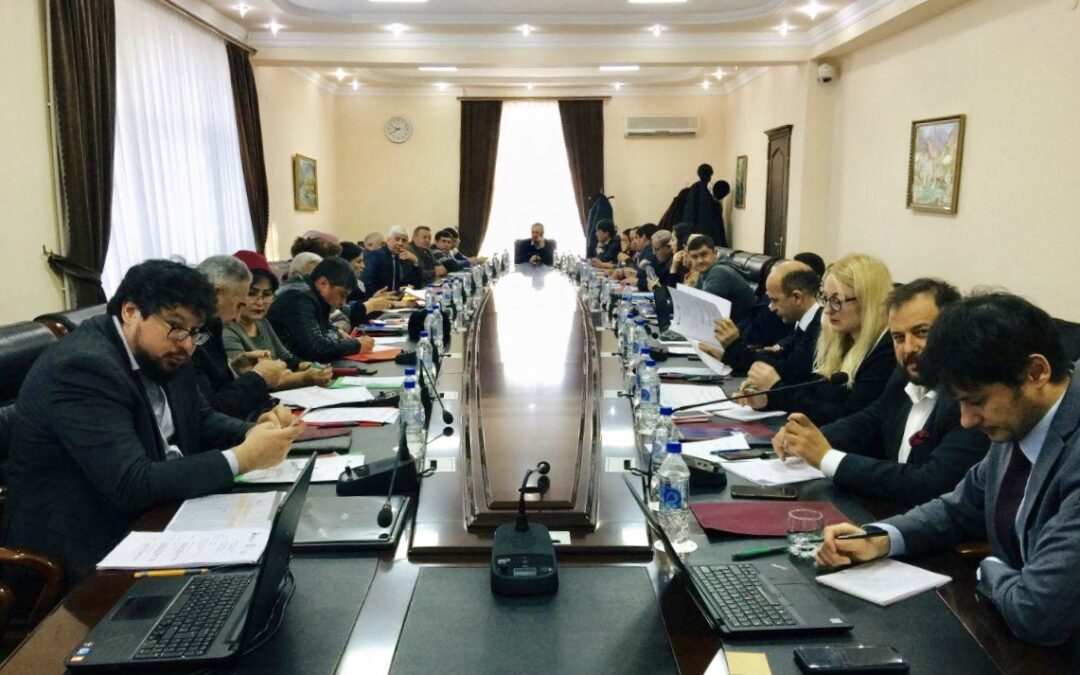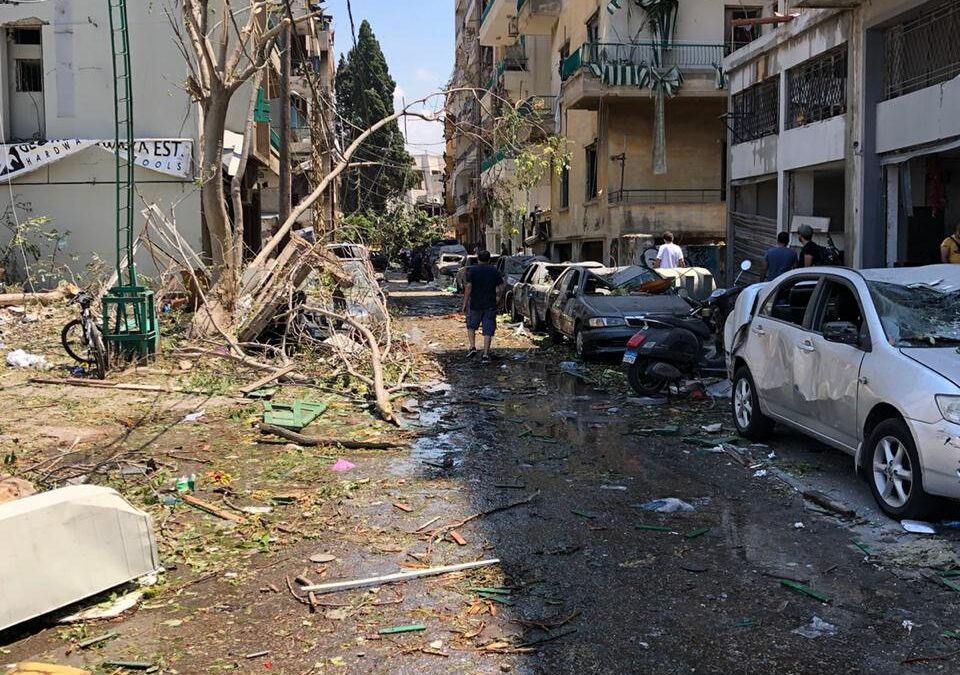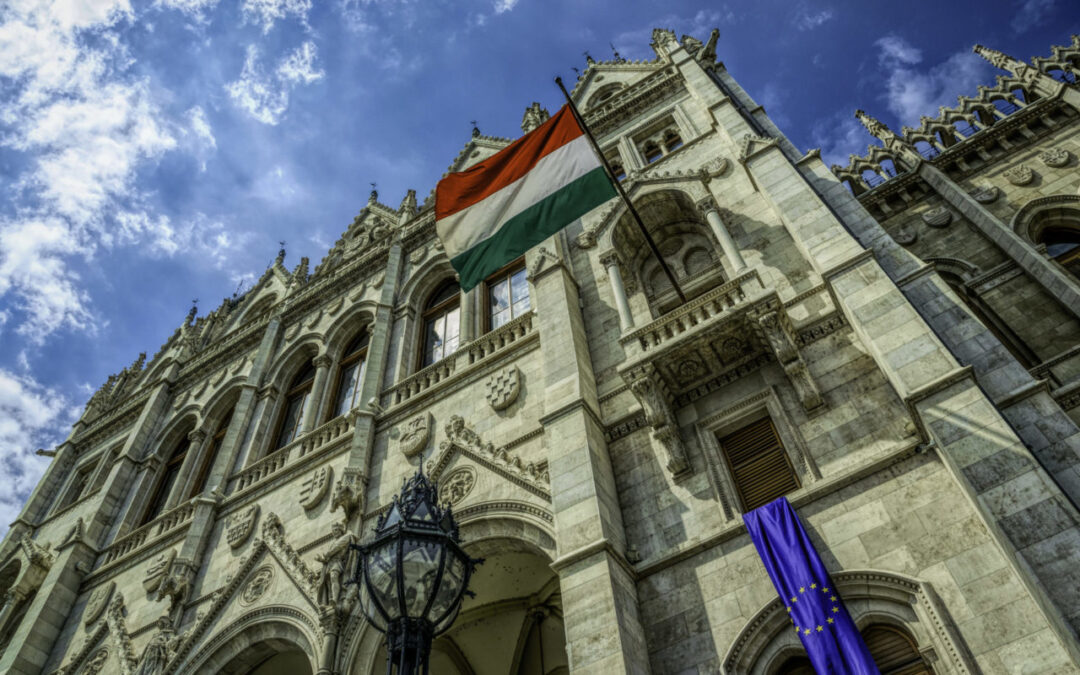
Aug 10, 2020 | News
Today, the ICJ published the recommendations from a workshop on strengthening the work of the specialized bodies of the Bar Association on the protection of the rights of lawyers in Tajikistan, held in December 2019.
The event was held on 16 and 17 December 2019 in the city of Gulistan in the North of Tajikistan for members of the Commission for the Protection of the Rights of Lawyers (CPRL) of the Union of Lawyers of the Republic of Tajikistan.The ICJ organized this seminar in cooperation with the Union of Lawyers of Tajikistan and the Legal Policy Research Centre, Kazakhstan.
The President of the Tajikistan Union of Lawyers, heads of regional departments of the Union of Lawyers, who are members of the Commission on the protection of the rights of lawyers, and other lawyers took part in the two-day discussion.
Based on the outcome of this discussion, the participants elaborated the recommendations to strengthen the work of the Commission. Those recommendations are provided below.
The recommendations have been formulated on the basis of the views expressed by members of the Tajikistan Union of Lawyers addressing the situation in Tajikistan, and are not intended necessarily to reflect the legal or policy positions or other views of the ICJ or to be applicable to other contexts.
This set of recommendations deals with key challenges faced by the CPRL in upholding the independence, security and effective work of lawyers in Tajikistan. However, the list of these issues is not exhaustive nor comprehensive and should be further reviewed in light of ongoing developments in the legal profession and the justice system as a whole.
The recommendations should be read in light of the international law obligations of Tajikistan to protect the right of access to a lawyer, to a fair trial and to effective remedies for violations of human rights, including under the International Covenant on Civil and Political Rights, and international standards on the role of lawyers, including the UN Basic Principles on the Role of Lawyers.
Recommendations in English (PDF)
Recommendations in Russian (PDF)

Aug 7, 2020 | News
The ICJ deplores the explosion at Beirut’s port district on 4 August 2020 that caused a large number of fatalities and casualties and calls for the prompt establishment of a special, independent, impartial and transparent mechanism to investigate the devastating blast with a view to ensuring accountability and redress for the victims.
The shockwave from the blast rippled across Lebanon’s capital, killing at least 157 people and injuring some 5,000 others, according to latest figures. The death toll is expected to rise as emergency services continue to search for dozens of missing persons under the debris of destroyed buildings. The Governor of Beirut estimates that the widespread destruction caused by the explosion has left some 300,000 people without shelter after their homes were rendered uninhabitable.
“Tuesday’s explosion has immeasurably compounded the suffering of a society already reeling from political unrest, prolonged economic mismanagement and a surge in COVID-19 cases,” said Said Benarbia, Director of the ICJ’s Middle East and North Africa Programme.
“Given the Lebanese legal system’s politicization and lack of independence and accountability, Lebanon should work with the United Nations to establish a special, independent mechanism to carry out the investigation in line with international law and standards with a view to establishing the facts, making recommendations for appropriate accountability measures, including criminal prosecutions if warranted, and for preventing such a catastrophe from happening again.”
According to international human rights law and standards, and specifically the Minnesota Protocol on the Investigation of Potentially Unlawful Death, the probe into the explosion must be prompt, thorough, independent, impartial and transparent.
While the Lebanese authorities have pledged to conduct a “transparent investigation” into the blast and mete out “severe punishment” to those responsible, given the Lebanese justice system’s systemic flaws and shortcomings, the persistent allegations of corruption, and a long-entrenched culture of impunity and de facto immunity of the country’s political leadership, the ICJ considers that the Lebanese authorities would not be capable of conducting such an investigation in a manner compatible with international human rights law and standards. The organization has extensively documented how improper executive influence and interference have continued to undermine the independence of the Office of the Public Prosecutor and of Lebanon’s judiciary. As a result, allegations of political corruption, chronic mismanagement and systematic abuses of power have not been investigated and have therefore gone unpunished over the years, eventually fuelling the 2019-2020 popular uprising against the government and the political system.
The ICJ has called on the Lebanese authorities to introduce and implement extensive legal and policy reforms to strengthen judicial independence and accountability in the country. None of these reforms have materialized.
“The independent mechanism should have a mandate to establish the truth, provide adequate, effective and prompt redress and reparation to the victims for the harm suffered, including through the award of compensation, and by ensuring that those responsible are held to account,” Benarbia concluded.
The ICJ further calls on the international community to support the establishment of such a mechanism.
The international community should also provide humanitarian aid and facilitate its delivery within the country ensuring that it reaches first the most in need and vulnerable among the population as they struggle to access healthcare, shelter, food and water.
The Lebanese authorities must be transparent and ensure the right of each individual to receive the necessary information on the potential health risks in the aftermath of the explosion, including as result of exposure to toxic fumes. Consistent with their obligations under international human rights law and standards to guarantee the rights to life and health, the Lebanese authorities must also take all necessary measures to prevent people from suffering additional harm.
Thus far, a number of Beirut port officials have been placed under house arrest pending the Lebanese authorities’ investigation into the explosion. With respect to this, the ICJ calls on the authorities to ensure due process and fair trial guarantees to persons deprived of their liberty who may eventually be charged with criminal offences.
Background information
President Michel Aoun and Prime Minister Hassan Diab have linked the blast to a stockpile of approximately 2,750 tons of ammonium nitrate, which had been stored in a waterfront warehouse at Beirut’s Port district for at least six years. The circumstances surrounding the ignition of the highly combustible material, however, remain unclear.
Furthermore, reports indicate that customs officials overseeing the ammonium nitrate’s storage at the warehouse contacted Lebanese officials, including members of the judiciary, on multiple occasions to alert them to the danger posed by such storage and to seek guidance on how to deal with it, but their repeated calls were ignored.
The explosion strikes Lebanon as it grapples with multiple crises, including the COVID-19 pandemic, and against the backdrop of an ongoing popular protest movement against rampant corruption, dysfunctional institutions and sectarian power structures, in addition to an acute State-induced socio-economic crisis that has eroded living standards and left many destitute and literally hunger-stricken. Successive governments and legislative authorities have consistently failed to effectively address these hardships and institute comprehensive and necessary reforms.
Contact
Said Benarbia, Director of the ICJ Middle East and North Africa Programme, t: +41 22 979 38 17; e: said.benarbia(a)icj.org.
Download
English (PDF)
Arabic (PDF)

Jun 3, 2020 | News
The ICJ is on the front lines to provide efficient and unique legal tools to fight illegal Covid-19 emergency measures. An emergency funding appeal is launched to support this fight.
While the world is focusing on the global health effects of the pandemic, rule of law and human rights violations are taking place, daily, unaccounted for:
- Failure to access healthcare of all people in India, Libya and South Africa;
- Enacting effective bans on abortion in some states in the USA;
- Failure to adequately tackle skyrocketing domestic violence around the globe during lockdown;
- Rights of refugees, stateless persons and destitute migrants being trampled on worldwide;
- LGBT minorities refused access to shelters;
- The abuse of emergency measures to restrict freedom of speech and erode the rule of law in Hungary;
- Attacks on the independence of the judiciary in Poland;
- Curtailing of due process and fair trial rights
- … and more.
The ICJ is on the front lines to document, advocate and provide efficient legal tools for civil society and the legal community to stop these abuses.
Please click on Donate to support ICJ fight against these exceptional attacks on the most basic of Human Rights.

Apr 22, 2020 | News
In a joint letter to EU Member States, the ICJ and other human rights NGOs have urged them to recognize the grave implications for human rights and the rule of law, of the Hungarian government’s recent emergency measures.
Ahead of the Council of the EU videoconference of EU Affairs Ministers to discuss the response to COVID-19, Amnesty International, International Federation for Human Rights (FIDH), Human Rights Watch, the ICJ, Open Society European Policy Institute and Reporters Without Borders (RSF) urged the Council to take immediate steps to protect the principles enshrined in Article 2 of the Treaty on European Union (TEU), and the rights enshrined in the EU Charter of Fundamental Rights. This is particularly needed in light of the already deteriorated state of the rule of law and human rights in Hungary, which warranted the activation, in September 2018, of the procedure laid down in Article 7.1 TEU.
The organisations urged the member states of the European Union to:
- include in the agenda of the upcoming session of the EU General Affairs Council an Article 7.1 TEU hearing on the situation in Hungary, including recent developments in relation to the COVID-19 outbreak, and address to the government of Hungary, as a matter of urgency, concrete recommendations to safeguard respect for the rule of law and human rights in the country, that the Hungarian government must implement by a set deadline;
- commit to assessing the implementation of the recommendations in a timely manner in order to reach a determination under Article 7.1 TEU and, should conditions warrant it, move forward under Article 7.2 TEU.
- ensure enhanced monitoring of the Hungarian government’s use of EU funding, including funds aimed at supporting member states during the public health crisis.
The organisations urged both the Council and the Commission to cooperate with each other, and with the European Parliament and national parliaments, to ensure a coordinated, consistent and effective response to the situation.
The full letter is available here: CSO Letter to GAC -rule of law in Hungary April 2020

Mar 30, 2020 | News
The ICJ is calling on the Turkish Parliament to extend the planned provision of alternatives to detention in response to the COVID-19 crisis to all those imprisoned for non-violent crimes who do not pose a current threat to members of the public, regardless of the nature of the offences for which they have been charged.
In particular, alternatives to detention should apply to all those detainees who are particularly at risk at losing their life or suffering severe health effects from COVID-19.
Measures to protect the right to life, the right to health and other human rights must apply equally and without discrimination in line with Turkey’s international legal obligations.
The government have announced the tabling of a draft law to reduce the prison population that has been under discussion in recent months. The process has been accelerated with the purported aim of addressing the serious health risk that an outbreak of COVID-19 contagion would pose to the prison population. However, the draft law has not been adapted to address the health crisis and contains several shortcomings.
The new measures would grant alternatives to detention, including house arrest or early parole to an estimated one-third of the prison population.
This welcome move is however limited by the exclusion of those convicted or under trial for terrorism offences or offences against the State.
“In Turkey, terrorism offences and offences against the State have long been abused to arrest, try and jail human rights defenders, lawyers, judges and political opponents,” said Massimo Frigo, Senior Legal Adviser for the ICJ Europe and Central Asia Programme. “The rights to life and health of these groups are now at particular risk.”
The ICJ considers that it is also essential that all detainees who are members of a group whose life or health may be at risk because of COVID-19 have either access to alternatives to detention, if they do not pose a current threat to public safety, or, otherwise, to detention conditions that may preserve them as far as possible from such risk.
“The State has a non-derogable obligation to protect the right to life of all its prison population, without discrimination of any sort,” Massimo Frigo added.









